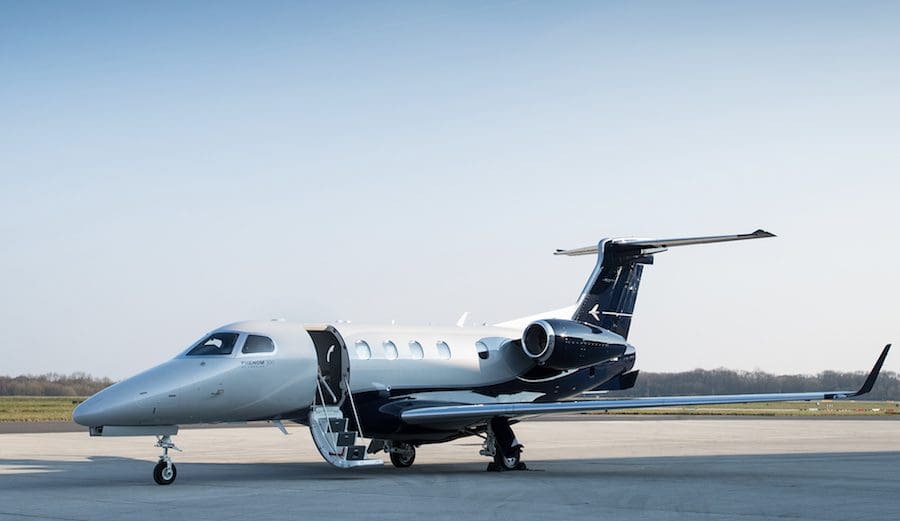Stratajet Launches Online Private Jet Booking System – Live In 44 Countries
An industry once viewed as the pinnacle of ultimate luxury and the preserve of the ultra-wealthy, rich and famous, flying by private jet is now a reality for the mainstream traveller after Stratajet, the world’s first real-time private jet booking platform, held a launch in The City of London late this April with what is described as a “cutting-edge” and revolutionary technology.
The offering, an online software service that can provide real-time, accurate prices of private jet flights, specifically addresses the lack of accessibility, transparency and cost-effectiveness that has until now existed in private aviation. The proprietary search and booking engine is is supposed to be the fastest in the world.
Touted as “redefining” the private aviation market it now puts private jets at customers’ fingertips and their disposal for the first time. It could be said to be democratising private jet travel. And, where better for Stratajet’s launch but at the heady level of Heron Tower’s 39th floor in London’s Square Mile.
Founded as a company in 2010 by Jonathan Nicol, a former military officer and pilot, the UK company is leveraging the power of technology and algorithms to give its passengers freedom and total control. As the brainchild behind the idea, he decided to do something about the hitherto archaic and inefficient state of the modern private jet business.
The company offers its platform to aircraft operators free of charge, allowing them to more efficiently track their jets. Through this direct relationship, Stratajet removes the need for travellers to phone a private jet broker – and the subsequent negotiation with operators.
The upshot is that it produces a quote on average 800% faster than the traditional method, whilst reducing time spent by operators in providing quotes.
The firm, however, stresses it is not a disruptor but an innovator that aims to improve the private jet experience. The company purports to bring the old-fashioned private aviation sector “out of the dark ages” – reducing inefficiencies.
To reach launch point it took five-years to develop ground-breaking technology, which involved sourcing a massive amount of data and crunching complex algorithms to get over the goal line. The technology behind Stratajet’s fully automated system is complex, which explains why it took years to build out and more than a few million dollars of investment along the way – some $7.5 million in fact from a clutch of investors thus far.
The company had to contend with factoring in no less than fifteen different sets of fees that are distinct to private aviation: airports fees, handling agent fees, government airways, taxes, etc. All of these vary quite considerably.
Take the landing fee a case in point. It has 247 different variables to consider when calculating. So, tiny differences can lead to changes in price of thousands of Euros. Add to this private and business aircraft do not move in set patterns or at set times, while strict regulations exist to manage crew hours.
The ground-breaking new service uses highly sophisticated technology to reduce the inefficiencies of an old-fashioned industry and remove the manual elements of booking a private jet. For those on the go, the Stratajet app also puts things at the traveller’s finger tips.
Investors in the company include Octopus Investments, one of Europe’s largest venture capital (VC) teams, Piton Capital, which invests in online businesses and is focused on the things that makes a market better (i.e. the demand, supply and information derived from customers – the ’network effect’), VC fund JamJar Investments founded by the innocent drinks founders, and Playfair Capital, an IT-focused fund.
Stratajet are keen to point out the USP of their offering versus other ‘online’ brokers, in that they say the latter claim to be able to provide instant quotes. However, in reality it can take several hours to return an actual cost through these operators according to a spokesman for Stratajet.
By contrast Stratajet claims that its system does all the grunt work within ten seconds, thus allowing one to book a private jet there and then in a flash.
The company’s inventory management software integrates seamlessly with an aircraft operator’s existing system. In particular, the software includes advanced quoting and CRM tools, thereby allowing operator availability and prices to be shown direct to the public – all without manual interaction.
By providing access to aircraft in this manner, the company claims it is helping operators achieve “increased revenue and efficiency, whilst helping to bring down costs for the consumer.” The range of aircraft encompasses the full range from a 4-seater (King Air 200 or Citation Mustang) to 14-seaters (Challenger) and Boeing 737-500 jets.
Despite cutting-edge IT being at the heart of its business, Nicol, a 37-year old Londoner, highlights that Stratajet nevertheless retains a personal touch in its business approach.
An Innovator…Not A Disruptor
“We’re not just a system that puts you in touch with an operator and then we take a step back,” says Nicol. “We use technology to look after every aspect of the trip; it’s transparent and real-time and we’re always in control of the flight. Also, there are no different levels of service, whether you get an empty leg or not.”
Drilling down a bit further into Stratajet’s vision, Nicol uses the analogy of road transport. “Imagine aviation as being split into buses (scheduled airlines) and limousines (private jets),” he explains painting a picture.
“There is nothing in between at the moment. But Stratajet’s model allows us to take the world’s supply of limos and turn them into taxis.”
Describing private aviation as being a “phenomenal and under-utilised resource” he adds: “There’s no hassle, no security, no sitting around waiting – it’s effortless and saves vast amounts of time.”
“For the first time people can see in real-time what private jet is available and what it’s going to cost them. And, the reason we are doing it is not to disrupt the broker industry, it’s not to try and get all private jet customers to fly with us, it’s to fundamentally improve the way people travel.”
In terms of commercial airfields in Europe, currently there are around five hundred. However, there are four times the number of airfields (2,107) where private jets can actually land, meaning you can get much closer to your final end destination flying with a private jet.
But it is worth appreciating in terms of this industry’s major inefficiency that around 40% of all private jets fly empty. And, highlighting the magnitude of the situation some 260,000 private jets moved without any passengers in Europe last year.
So, for example, if in 2015 you went to the South of France for a week’s holiday by private jet you would be paying for the plane that flies outbound to your destination as well as the plane’s empty return legs that you would not be on before your actual departure date. This is why the cost of private jet has been extremely high. “And, until now no one has had the ability to solve this problem,” says Nicol.
Looking further ahead he says: “We believe there will soon be a watershed moment in the aviation business when people will say there was private aviation before Stratajet and private aviation after Stratajet – it’s a total game-changer.”
So what next for the operator? Well, Nicol is now looking to replicate the exact model for Europe in the United States by visiting 426 operators across 48 states to introduce them to the company and its private jet booking model.
For more information on Stratajet see: https://www.stratajet.com/
About the author: Roger Aitken is a business journalist who contributes to Forbes amongst other titles and was a former FT staff writer.









